Eating These 5 Foods in the Morning Will Help You Have More Energy All Day

For many people, a daily cup of coffee feels like the perfect early morning pick-me-up. Just the act of brewing a pot of coffee—and its intoxicating smell—can be something to look forward to each morning.
Whether you take it black or with milk, a cup of joe can certainly help you wake up. Experts say, however, that when it comes to having sustained energy throughout the day, we need to fuel up on more than caffeine.
But before you pick up a croissant to go with your coffee, consider this: What you eat for breakfast could determine whether you cruise or crash through your afternoon’s activities. Read on to learn what nutrition experts say to eat in the morning if you want to have more energy all day long.
READ THIS NEXT: If Your Hair Is Thinning, This Food Could Be to Blame, Study Says.
1
Whole grain cereals, breads, or oatmeals
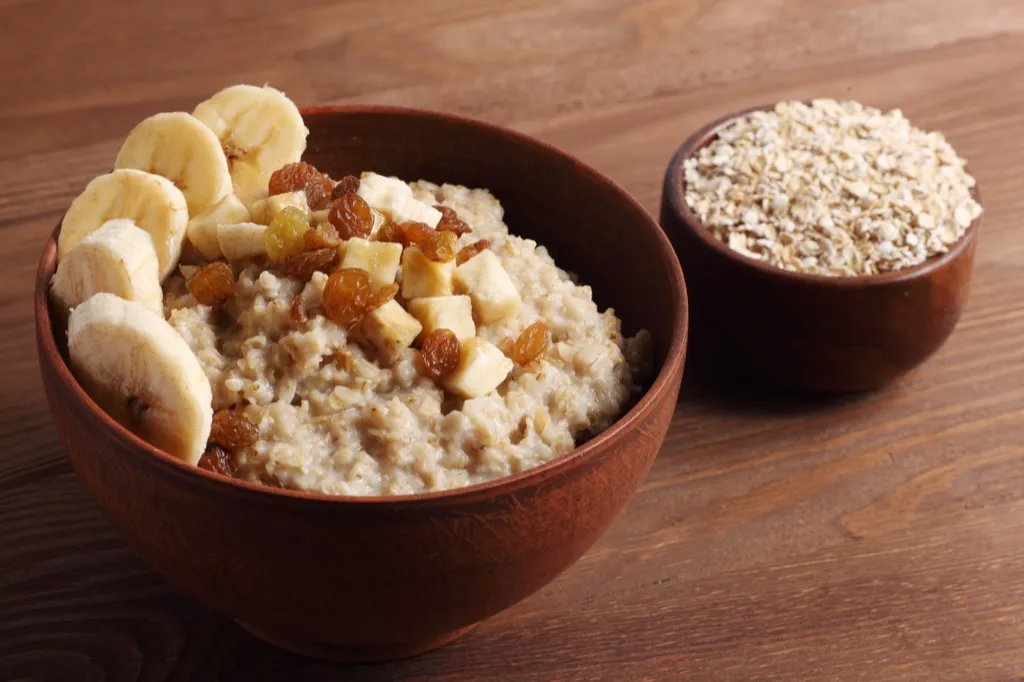
Carbohydrates get a bad rap, but not only are they not bad for your health, they can also provide you with prolonged energy throughout the day. The key is to choose carbohydrates that are digested slowly, otherwise known as “slow carb” foods. In particular, whole grain cereals, whole grain breads, and oatmeal pack a major energy punch—and come with a whole host of other health benefits, too.
“High-fiber, whole-grain cereals and breads can help keep your blood sugar on an even keel and avoid a mid-morning energy crash,” explains Harvard Health Publishing. “With the hundreds of types of cereal on the market, bran cereal, bran flakes, and steel-cut oatmeal are typically the healthiest bets.”
To select the healthiest options, read the labels and make sure your selection is high in fiber, low in sodium and sugar, and lists “whole grain” as the first item on the ingredient list, Harvard experts advise.
READ THIS NEXT: Men Who Eat This Are at 29 Percent Higher Risk of Colorectal Cancer, New Study Finds.
2
Chia seeds
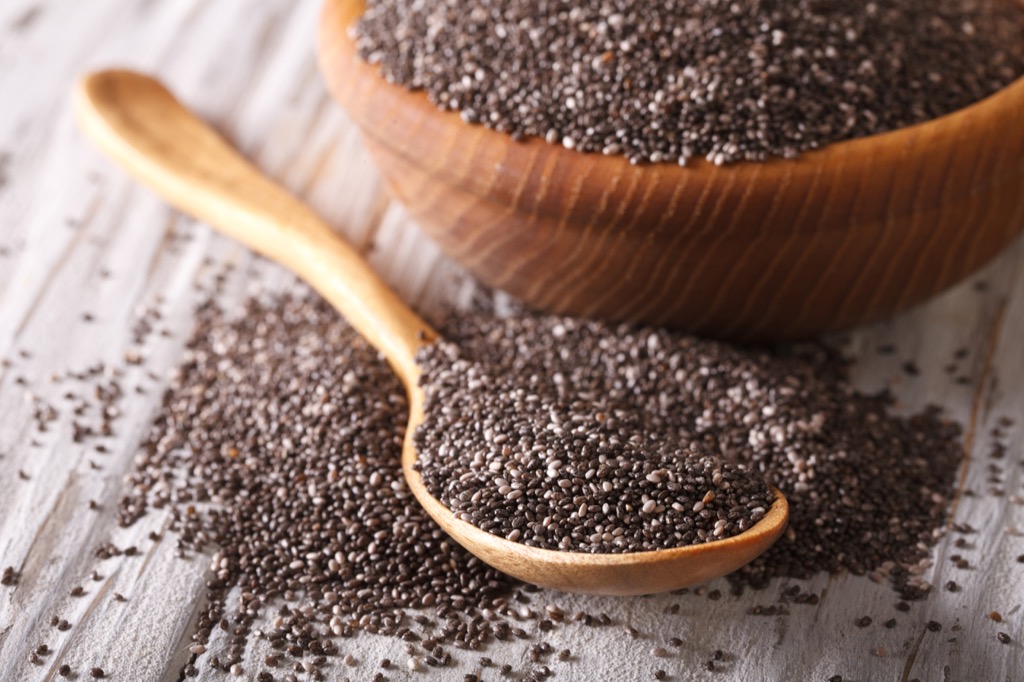
Packed with fiber, omega-3 fatty acids, protein, minerals, and antioxidants, chia seeds are a great addition to your diet. Eating them as part of your morning routine can also give you the energy boost you need, while helping you avoid a mid-morning crash.
According to the Harvard T.H. Chan School of Public Health, that’s because chia seeds help “slow down digestion, which can prevent blood sugar spikes after eating a meal and promote a feeling of fullness,” making you less likely to eat foods that will spike your blood sugar later.
3
Greek yogurt
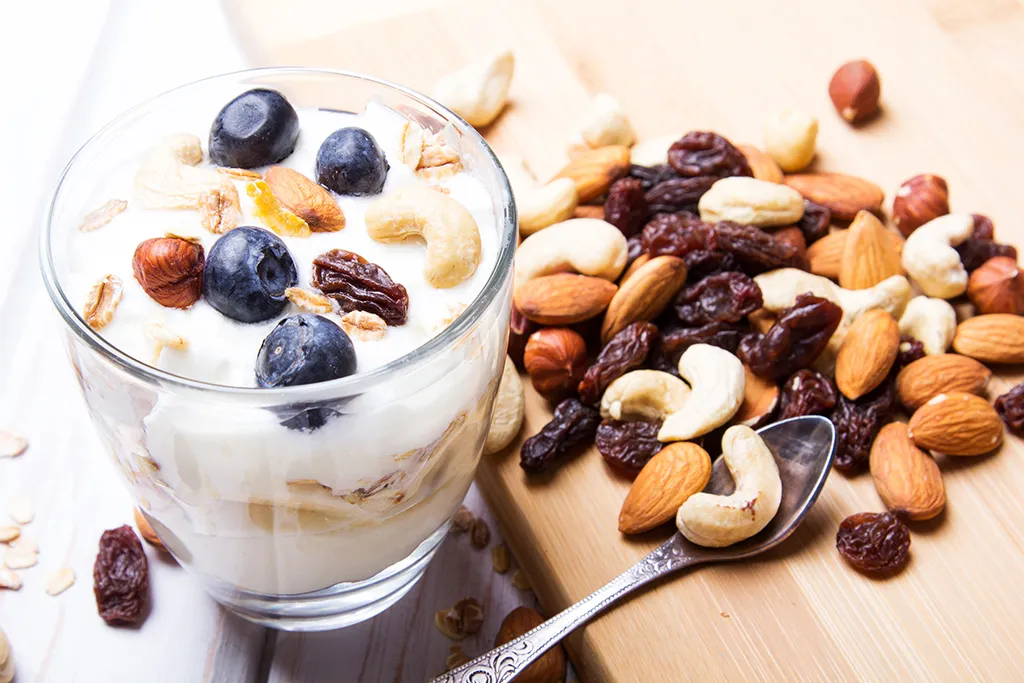
Adding protein to your breakfast helps keep your energy levels high, Harvard experts note. They say that while “yogurt is a good choice, Greek yogurt has more protein than regular yogurt,” making it even more beneficial.
In fact, Greek yogurt tends to have roughly double the amount of protein compared to traditional yogurt, Jason Ewoldt, RDN, LD, a wellness dietitian at the Mayo Clinic Healthy Living program, pointed out while speaking with AARP. Just be sure to check the sugar content before making your selection.
4
Fruit
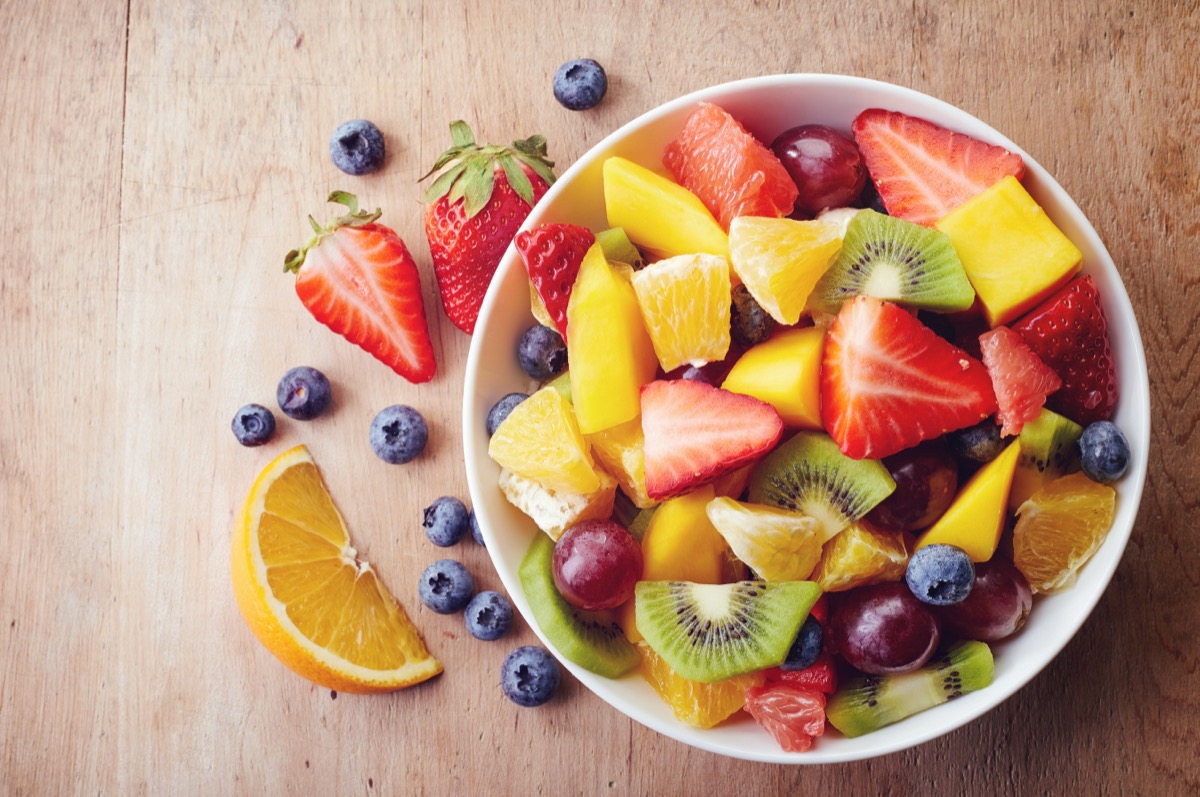
Fruit is another high-fiber food that can help sustain your energy for longer—and luckily there are many easy ways to enjoy it with your breakfast.
“Fruits like apples, pears, raspberries, blueberries, blackberries, and strawberries are high in soluble fiber. Just like vegetables, many of these can be enjoyed raw,” registered dietician Stephanie Coburn, MS, RD, tells Best Life. “You can also mix fruit into your morning oatmeal, top your morning cereal or yogurt with berries, or mix some of your favorite fruit into a smoothie,” she suggests.
5
Eggs
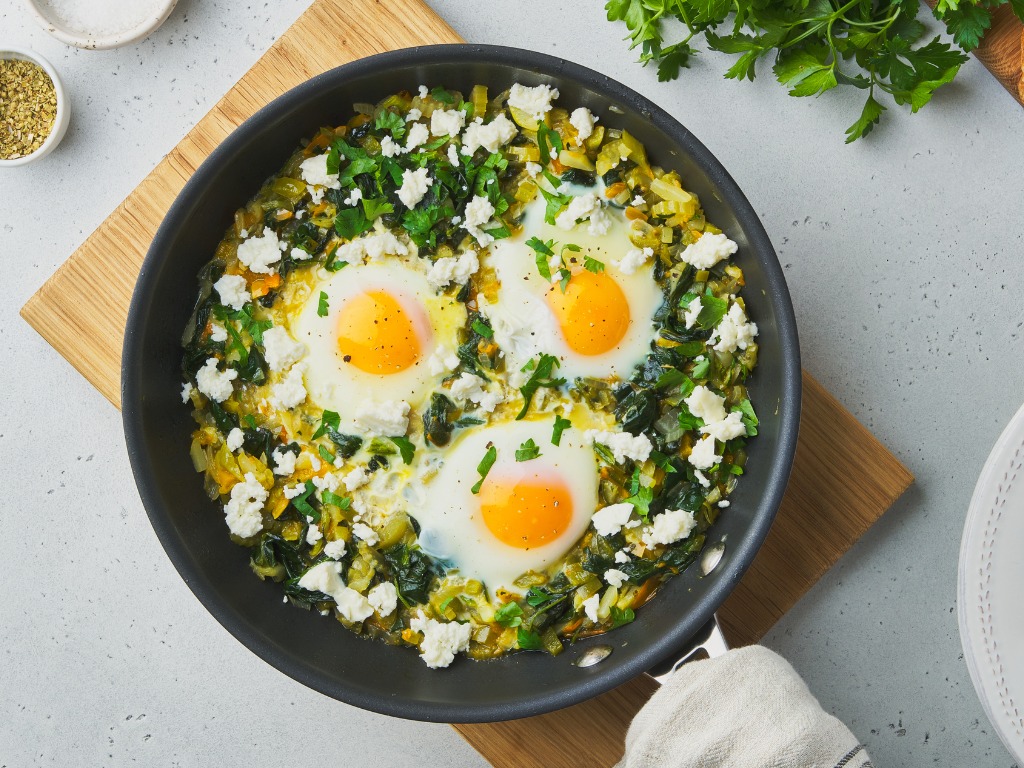
Eggs are another great source of long-lasting energy. “They provide a nutrient-dense source of energy from protein and fat, approximately 75 kcal per large egg, as well as several B vitamins, including thiamin, riboflavin, folate, B12, and B6, which are required for the production of energy by the body,” explains a 2009 report in the journal Nutrition Today.
Healthy people can eat one egg per day without increasing their risk of developing heart disease, Harvard experts say.